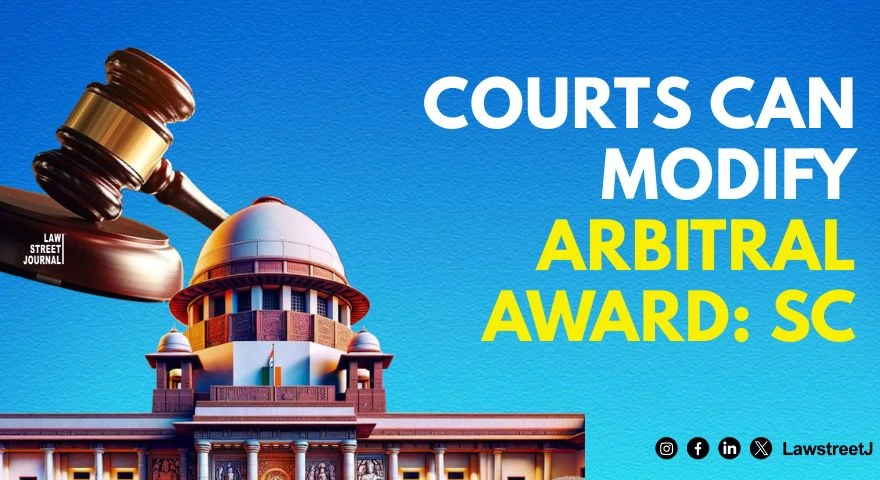NEW DELHI: In a significant decision, the Supreme Court on Wednesday held that the court has a limited power under Sections 34 and 37 of the Arbitration and Conciliation Act 1996 to modify the arbitral award.
The top court by a majority view of 4:1 said such a power may be exercised when the award is severable, by severing the “invalid” portion from the “valid” portion, and by correcting any clerical, computational or typographical errors which appear erroneous on the face of the record.
The Constitution bench headed by by Chief Justice of India Sanjiv Khanna also said the court can modify the post award interest in some circumstances and exercise power under Article 142 of the Constitution, however, with great care and caution.
The majority judgement was written by the CJI. Justices B R Gavai, Sanjay Kumar and Augustine George Masih signed it.
The bench said, "To deny courts the authority to modify an award—particularly when such a denial would impose significant hardships, escalate costs, and lead to unnecessary delays—would defeat the raison d'être of arbitration. This concern is particularly pronounced in India, where applications under Section 34 and appeals under Section 37 often take years to resolve."
The authority to set aside an arbitral award necessarily encompasses the power to set it aside in part, rather than in its entirety, the court said.
"This interpretation is practical and pragmatic. It would be incongruous to hold that power to set aside would only mean power to set aside the award in its entirety and not in part. A contrary interpretation would not only be inconsistent with the statutory framework but may also result in valid determinations being unnecessarily nullified," the bench said.
In his dissent, Justice K V Vishwanathan, however, held while exercising power under Section 34 of the Act and consequently the courts in the appellate hierarchy do not have the power to modify the arbitral award.
He said, modification and severance are two different concepts while modification is not permitted under Section 34, severance of the award falling foul of Section 34 is permissible in exercise of powers under Section 34. Such a power of severance is also available to the courts in the appellate hierarchy to the Section 34 court.
In his judgment, Justice Vishwanathan said, the power to set aside will not include the power to modify since the power to modify is not a lesser power subsumed in the power to set aside and the power to set aside and power to modify do not emanate from the same genus and are qualitatively different powers in the context of the Act.
The 190-page judgment came on a reference by a three-Judge bench on February 20, 2024.
The questions before the bench, included, if Indian courts were jurisdictionally empowered to modify an arbitral award if so, to what extent?
It must be noted that the Arbitration and Conciliation Act, 1996, does not expressly empower courts to modify or vary an arbitral award. Section 34 of the 1996 Act only confers upon courts the power to set aside an award.
The apex court, on several instances in the past, has been compelled to modify arbitral awards, seeking to minimise protracted litigation and foster the ends of justice.
In contrast, some judgments have posited that Indian courts cannot modify awards, due to the narrowly defined scope of Section 34.
The majority judgment said if it were to be decided that courts can only set aside and not modify awards, then the parties would be compelled to undergo an extra round of arbitration, adding to the previous four stages: the initial arbitration, Section 34 (setting aside proceedings), Section 37 (appeal proceedings), and Article 136 (SLP proceedings).
"In effect, this interpretation would force the parties into a new arbitration process merely to affirm a decision that could easily be arrived at by the court. This would render the arbitration process more cumbersome than even traditional litigation," the court said.
The court also said the doctrine of implied power is to only effectuate and advance the object of the legislation, i.e., the 1996 Act and to avoid the hardship.
"It would, therefore, be wrong to say that the view expressed by us falls foul of express provisions of the 1996 Act," the bench said.















